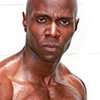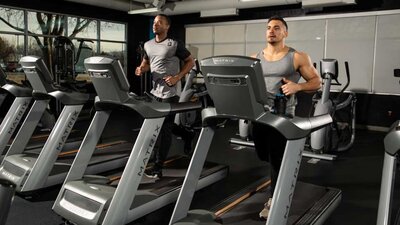Q. My High-School Football Coach Told Me I Should Only Do Cardio After I Finish My Resistance Training. Was He Right?
Have you ever done a heavy lifting session after a long bout of cardio? It's more grueling than eating gruel. When I step up to the weight rack after 90 minutes of hoops, my energy and strength stores sag. Every time I play ball before lifting, I have my worst weight-training sessions.
On the flip side, if I play basketball after my weight-training sessions, I feel fresh and energetic. I've learned that lifting before cardio is much better for fat loss and workout energy efficiency. It takes a lot of energy to move heavy weights; don't zap it all by treadmilling beforehand!
To achieve "shreddedness," your body needs to use your stored fat as fuel for exercise. In order to do this, you must burn off your glycogen stores first. When you weight-train, you typically use glycogen as fuel. By doing weight-training first, you can burn the majority of your glycogen stores. Knocking out your cardio after you crush the weights will burn more fat!
The Key Factor: EPOC
After a workout, your body continues to burn additional calories up to 48 hours. This is known as excess post-exercise oxygen consumption. EPOC occurs because your body needs energy to repair your muscles after you've challenged them. It occurs at a much higher rate after intense weight-training than after low-intensity, steady-state cardiovascular training; that's why it's important to put as much energy into your lifting sessions. If you do steady-state cardio before you lift, you won't have the energy to work as hard as you can. A less productive weight-training session can impact EPOC. Less calorie incineration for you!
A University of Tokyo Study published in Medicine and Science in Sports and Exercise found that doing cardio after weight training burned more fat during the first 15 minutes of the cardio session than doing cardio before lifting. Don't believe me? Try it for yourself! Spend one day lifting before your cardio and another on the treadmill before you hit the weights.
You'll be able to tell which method works best.

